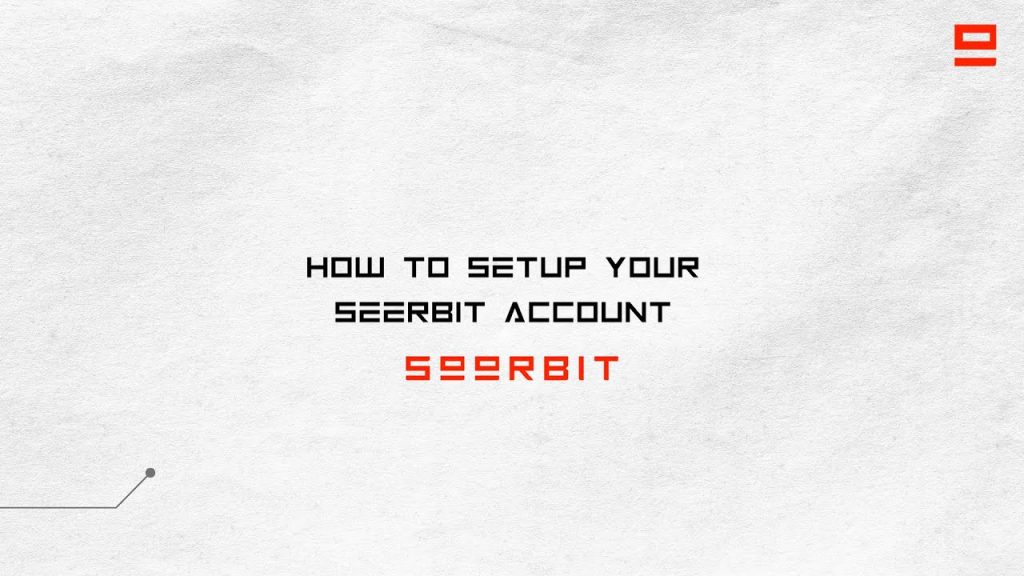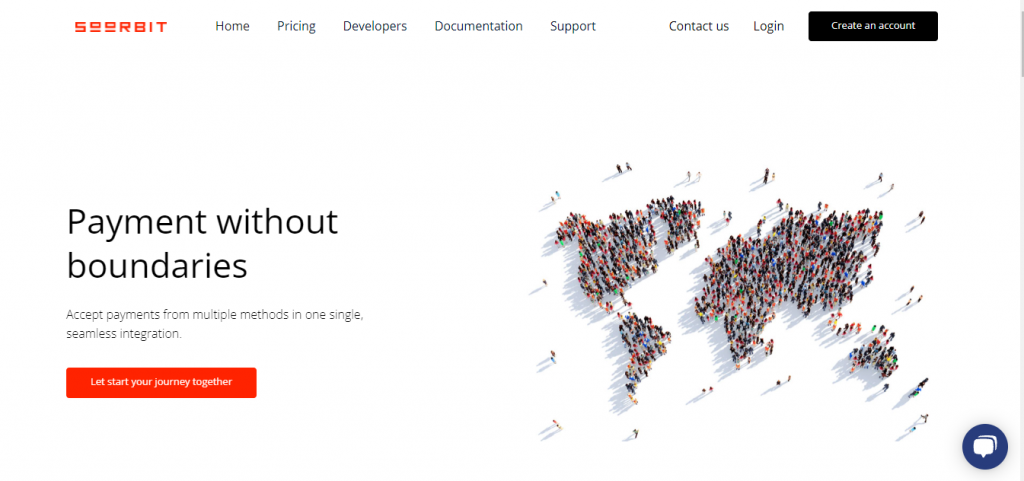SeerBit is a Nigerian payment processing platform that equips businesses with tools required to process payments across Africa. Through fast, seamless, inclusive and secure payments via online and offline models, Seerbit seeks to bridge the financial gap to ensure that no customer is disfranchised
Omoniyi Kolade, CEO of SeerBit, in an interview with a Technext correspondent, tells us about the startup’s journey and how they are bridging the payment gaps in Africa.
Tell us about SeerBit, what you do and your journey into Tech?
SeerBit it is a platform that enables businesses with digital tools required to process payments for customers in Africa. We are an enterprise payment platform developed for both online and offline businesses and also a platform to assist innovation payment for banks in the marketplace. Through that process, we create solutions that enable fast seamless inclusive and secure payments for stakeholders in African commerce.
Understanding commerce is the key driver and payment is the background to complete commerce in any country or ecosystem. We realize that some businesses are online and digital while their customers are offline, Seerbit seeks to bridge that gap to ensure that no customer is disfranchised. We do not only focus on payment but on connecting all stakeholders.
SeerBit has been around since 2020, coming from Centric-Gateway and the company got into payments when we started working with Banks in the early days when we were building solutions around customer behaviour and CRM platforms. We got interested in Mobile Money when the license was first released and provided Agent Banking services.
We have also partnered with consulting firms where we were able to understand the Nigerian market and customer behaviour and lifestyle which is integral to our strategy and implementation of our services. We have built a digital bank of one of Nigeria’s tier 1 banks and have also created an open banking platform for another bank. We have created various products across the payment spectrum.
FinTechs are gradually encroaching into the business model of banks like payments, deposits, microloans even airtime recharge and bills payment. Based on your experience working closely with banks, how much of a threat are fintech to traditional banks?
I see it two ways, they are complementary. It depends on what perspective you are looking at it from and the scale of the problem you wish to solve. The bigger the problem, the bigger the opportunity. Banks are not structured enough to solve all the problems; they might be bigger but they might not be able to solve the micro problems which are where fintech is playing in.
Some might see fintech as a threat but I choose to look at financial services as a whole. I have not seen any fintech today which stands on its own without some relationship with a traditional bank or micro-finance bank. Our focus should be on equal value generation that can be provided to the gaps and the problems, not competition. Banks need to come to a point where they realize that there are some areas they cannot grow or drive without partnership and support with fintech.


A lot of fintech solutions claim to be bridging the gap between the financially included and the unserved/underserved. Yet their products are tailored to be accessed through smartphones of which only about 35% of Nigerians mostly concentrated in the big cities use. A lot of people have advocated fintech deploying more offline solutions if they must bridge this gap. What’s your take on that?
I think it’s important to understand user behavioural patterns and needs before launching products because what we see are digital solutions but the users are still manual. If I can provide a solution to a business owner that helps him manage his inventory, I am almost certain he will use it because it helps her remain sustainable and keeps his business running.
This is important before launching the technology product. Inclusion comes first at the technology infrastructure level before it becomes financial. SeerBit basically creates tools and models that allow businesses to integrate payments across various verticals.
What do you think of cross-border payment and the possibility of any payment company finally hacking into it? because whoever decodes it would definitely have access to endless payments opportunities.
Cross-border payments are simply about understanding cross border business or cross border commerce because there first has to be commerce before payments. We also have to understand the handshake between demand for a product outside its current location and the policies behind getting that product to a new location.
We need to know that right now Africa is very divided with 54 countries having 54 different payment rules you have to align with which are all potential barriers that the payments companies are trying to solve. To succeed at cross border payments, we need to understand trade and how it works.
ACFTA is working on setting new rules that seek to make African trade similar to what we have in the European Union. I believe that’s the best way to go to take away these barriers, it must be attacked at the regulatory and trade levels.
Do you think the eNaira is a good idea? Do you expect Nigerians to catch on quickly enough? How does the CBDC affect the payment space and what moves are you taking to adjust to it?
I think the e-naira is more about regulation and regulation is required to create a balance in the ecosystem. I think these solutions are creating transitions to a more digitally focused world. The e-naira solution is also complementary because I don’t believe one singular approach can solve the payment puzzle because there are a variety of behaviours and verticals. I will use the e-naira as I gain more information about it and how it’s going to work.


Regulation is one problem continuously plaguing the general fintech space. Do you think the Nigerian regulators like the CBN, SEC etc. have been fair in their dealings with Nigerian fintech?
Regulations are very vital in any industry or market; they are meant to keep consumers safe from risks and threats. They are a necessity that cannot be avoided to create a balance. I think it’s all about awareness for the regulators and also the entrepreneurs. The only way to create an easier marketplace is if there is a synergy between all the parties, whereby policies are put in place to help businesses leverage opportunities.
Nigeria’s fintech sector appears to be the most active on the continent especially as regards funding. Do you think the Nigerian space would eventually come to a saturation point or do you expect this inflow of VC funding to continue for a long time? Does SeerBit have funding plans?
We must agree that we are not a matured ecosystem, we are still maturing which is why we are attracting this much investment. There are 3 key growth areas in Africa for me; Stability and Security, Finance and Infrastructure and Regulation and Taxation. Our population growth has also been a major factor leading to growth, so as long as we keep increasing there will always be problems to solve and opportunities to make money.
I am not an investor so I cannot tell you if the funding will stop or not but based on the market indices in developed economies, we can forecast and see based on how many billionaires and millionaires. We can see that the developed world is interested in Africa and how developed our payment systems are in West and East Africa.


In your own projection what does the future hold for the African payment space and what role do you envision your startup would play in that future?
The future is not certain and is not something we can predict; we can only follow patterns. I believe payments is still going to improve exponentially and I’m leaning towards identity, where payments will be made based on your biometric details. I also think Artificial Intelligence will play a greater role.
Seerbit is about the future; “Seer” means to see the future and “Bit” is ones and zeros. Seerbit’s goal is to drive the future of payments for Africa both offline and online. We are also heavily focused on helping businesses scale. Scaling is one of our major value propositions and we reflect that in our products and services.






